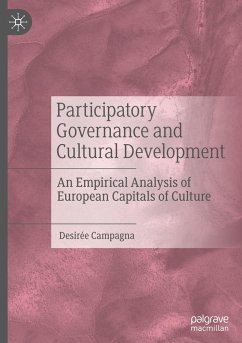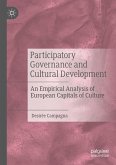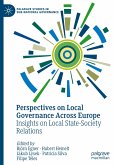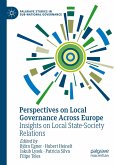This book analyses the impact of participatory governance on cultural development, explaining why cultural participatory practices can lead to positive sustainable effects or to unexpected and controversial ones. It focuses on four projects realized in the two European Capitals of Culture of 2013 - Marseille-Provence (France) and Kosice (Slovakia) - within the Programme 'Quartiers Créatifs' and the SPOTs Programme. By combining different strands of the Democratic Theory and applying the process tracing methodology, the book argues that participation produces cultural developmental processes only when a certain intensity of trust is reached among the various stakeholders. In the presence of fully-fledged trust, participation activates a reinforcing chain of capacity-building and social capital that nurture long-term cultural networks. On the contrary, in the absence of fully-fledged trust, participation can generate contestation movements or isolated cultural production. Uniquely,the book challenges the 'optimistic aura' of participatory governance of culture, showing its conflicting but always productive nature.








